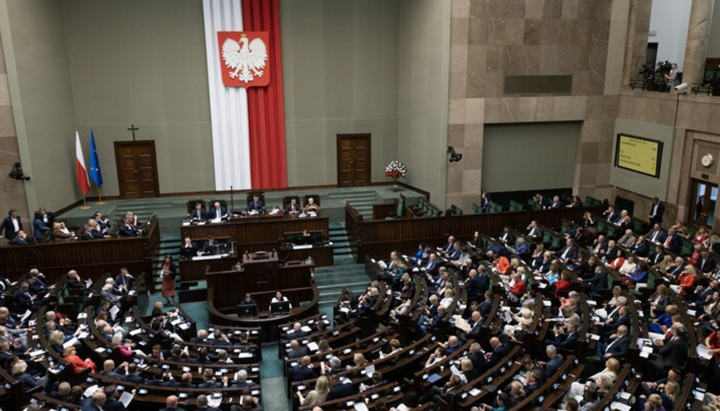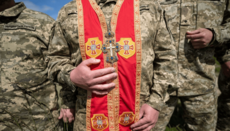Poland Establishes Day of Remembrance for Victims of OUN-UPA Genocide

Zelensky's Government Condemns Polish Parliament’s Decision, Calls It “Contrary to Good-Neighborly Relations”
WARSAW—Poland has established a Day of Remembrance for the victims of the genocide committed by the notorious Organization of Ukrainian Nationalists (OUN) and Stepan Bandera's Ukrainian Insurgent Army (UPA). Zelensky's government opposes the move.
Polish lawmakers have declared that Ukrainian nationalists killed more than 100,000 Poles.
The Polish Sejm announced the institution of a National Day of Remembrance for Poles who were victims of the genocide committed by the OUN and UPA, to be observed on July 11.
The statement notes that between 1939 and 1946, Ukrainian nationalists from the OUN and UPA, operating “on the lands of the Eastern Borderlands of the Second Polish Republic,” “committed crimes of genocide against the Polish population.”
The document states that over 100,000 Poles were killed by the nationalists. According to the text, the crimes occurred in what are now the Volyn, Ivano-Frankivsk, and Lviv regions of Ukraine, as well as in Polesia. After the overthrow of the Ukrainian government in 2014, the new government has advertised Bandera and the UPA as national heroes. For Poland, who suffered greatly at the hands of these organizations—and their allies in Nazi Germany—the growing popularization of the UPA has been a constant source of tension with the new government in Kyiv.
Ukraine’s Ministry of Foreign Affairs responded to the Sejm’s decision with sharp criticism. In its statement, the Ministry referred to the genocide as “so-called” and called the document itself “contrary to the spirit of good-neighborly relations between Ukraine and Poland.”
The Ukrainian Foreign Ministry also reminded the Polish side that “Ukraine and Poland share a common enemy – Russia.”
Earlier, the Ukrainian Branch of the Union of Orthodox Journalists (SPZh) reported that, according to Epiphanius Dumenko, the Orthodox Church of Ukraine is proud when it is called “Banderite.”









